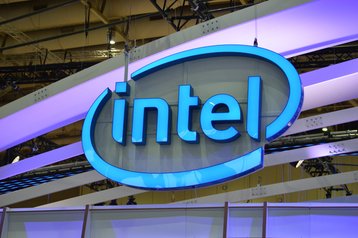Patches for the Meltdown and Spectre CPU vulnerabilities on Intel chips could cause servers to reboot more frequently, the company admitted.
The chipmaker previously said the fixes negatively impacted older Broadwell and Haswell CPUs, but now says that Ivy Bridge, Sandy Bridge, Skylake and Kaby Lake-based platforms are also more likely to reboot after the patches.
Who would have thought updating over a decade’s worth of hardware would cause problems?
“While the firmware updates are effective at mitigating exposure to the security issues, customers have reported more frequent reboots on firmware updated systems,” Navin Shenoy, executive VP and GM of Intel’s Data Center Group, said in a blog post.
“We have reproduced these issues internally and are making progress toward identifying the root cause. In parallel, we will be providing beta microcode to vendors for validation by next week.
The admission comes a week after The Wall Street Journal reported Intel was secretly telling some cloud companies to avoid updating their systems. In a confidential document, it told select partners to “delay additional deployments of these microcode updates,” despite telling the wider public to continue. Intel has now issued firmware updates for 90 percent of its CPUs introduced in the past five years.
Shenoy also detailed some of the impact the patches are expected to have on CPU performance, something Intel initially downplayed.
However, the company said it had only tested server platforms running two-socket Intel Xeon Scalable (Skylake) chips, even though that represents just a small segment of the systems currently deployed in data centers.
“As expected, our testing results to date show performance impact that ranges depending on specific workloads and configurations,” Shenoy said. “Generally speaking, the workloads that incorporate a larger number of user/kernel privilege changes and spend a significant amount of time in privileged mode will be more adversely impacted.”
He added: “Impacts ranging from 0-2 percent on industry-standard measures of integer and floating point throughput, Linpack, STREAM, server-side Java and energy efficiency benchmarks. These benchmarks represent several common workloads important to enterprise and cloud customers.
“An online transaction processing (OLTP) benchmark simulating modeling a brokerage firm’s customer-broker-stock exchange interaction showed a 4 percent impact. More analytics testing is in process and the results will be dependent on system configuration, test setup and benchmark used.”
Using the FlexibleIO benchmark to stress the CPU (100 percent write case), Intel found an 18 percent decrease in throughput performance - but this decreased to two percent when using a 70/30 read/write model.
In Storage Performance Development Kit (SPDK) tests, the company found different results - using SPDK iSCS, it saw a 25 percent impact while using a single core; using SPDK vHost, it saw no impact.
Shenoy said: “In those areas where we are seeing higher impacts, we are working hard with our partners and customers to identify ways to address this. For example, there are other mitigations options that could yield less impact.”

